
ASEAN – A Malaysian perspective
Latest
| TIN LIÊN QUAN | |
| Malaysian expert highlights ‘ASEAN miracle’, external partnerships | |
| Vietnam helps boost ASEAN's economy amid COVID-19: Malaysian press | |
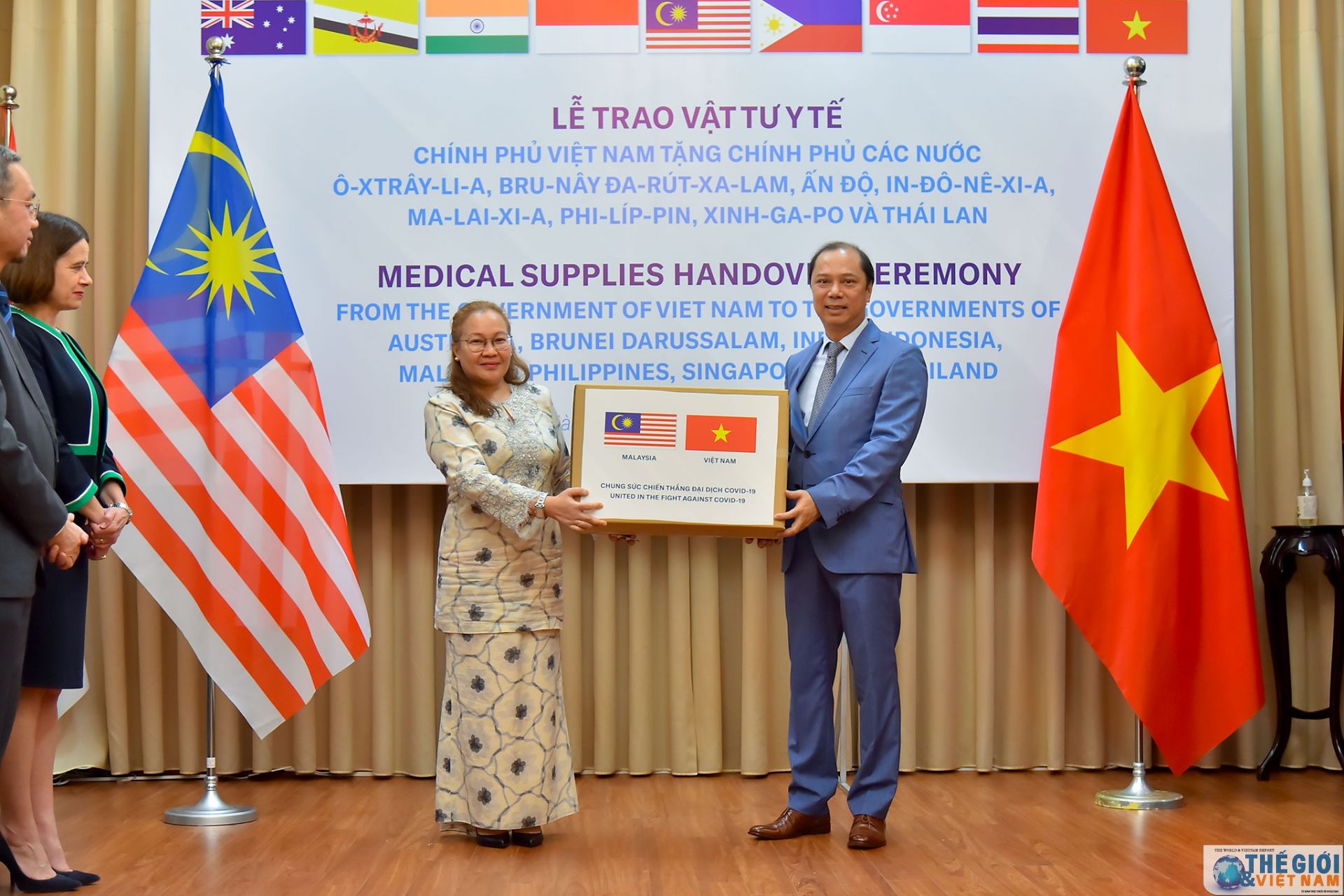 |
| Deputy Foreign Minister Nguyen Quoc Dung (right) symbolically handed over medical supplies to Malaysian Ambassador Shariffah Norhana Syed Mustaffa on May 18, 2020. (Photo: Tuan Anh) |
ASEAN have always been regarded as a thriving regional organization by those who had keenly followed the development of international and regional affairs over the past half-century. What lends credence to such a status is ASEAN’s ability to maintain peace and stability within the region. ASEAN has succeeded, in facilitating the exponential growth of its members’ economy and building an ASEAN community, connecting the peoples of its ten member countries in varying ways.
ASEAN Community - A significant milestone
As a founding member of ASEAN, Malaysia contributed its fair share to this success and is fully committed to ASEAN. The organization has been a cornerstone in the machination of the Malaysian Government, with the integration of ASEAN policy prescriptions across our own domestic policies. In addition, we recognize that the nation’s well-being is founded on strong and friendly relations with other ASEAN countries and its commitment to the multilateral system.
Under the present leadership of Prime Minister Tan Sri Muhyiddin Yassin, Malaysia continues to promote a forward-looking and pragmatic foreign policy that facilitates trade, attracts foreign investment as well as projects Malaysia as a stable and peaceful country in the region. As a trading nation, Malaysia’s perspectives in engaging the world are broad and contingent on vibrant multilateral institutions.
In this regard, we view the establishment of the ASEAN Community as a significant milestone to help achieve this mission and facilitate Malaysia’s approach and engagement with its stakeholders both regionally and globally. Premised on the three pillars of ASEAN, Malaysia has utilized the ASEAN Community as a mechanism to responsibly react and manage multifarious issues.
A similar spirit is mirrored in Malaysia’s approach to the ASEAN Economic Community, who had all but eliminated tariffs on goods across ASEAN. Since its establishment, Malaysia’s inter-ASEAN trade has expanded beyond its initial targets, with a double-digit year-on-year growth recorded for the year 2019. Moving forward, the Government’s policy continues to be integrated with the ASEAN’s Vision 2025, with intense engagement to improve the Community via talks to eliminate non-tariff barriers and towards a highly integrated and cohesive economy among all ASEAN member states, to name a few.
Besides building on the ASEAN Community, the concept of ASEAN centrality has been a significant tool for Malaysia’s engagement on issues in the region. We recognize that as a country alone, Malaysia does not wield the same political influence and economic power as ASEAN as a bloc. We must have our say, particularly on affairs with direct impact on the livelihoods of our people and this is done more efficiently through ASEAN.
Through ASEAN centrality, the narrative that Malaysia is in its central and non-aligned would be reinforced. On this basis, Malaysia would be able to engage with bigger powers more boldly. Malaysia may be too small a state to shift the geopolitical needle, but ASEAN is not. ASEAN stands as proof that small states in the right circumstances are great influencers.
Malaysia’s expectation of ASEAN in 2020
At the start of the year, when confronted with the question of our expectations for this year, we journeyed back to how ASEAN had weathered economic and financial challenges, such as the Asian financial crisis of 1997 and the global economic crisis in 2008 and 2009. We also looked back on how we managed to overturn it and in parallel, making ASEAN the fifth largest economy globally. Along with this remarkable growth journey, ASEAN has managed to balance economic growth with human development to lift millions of people out of poverty across the entire region. More importantly, we reached a historic milestone when we established the ASEAN Community in 2015.
ASEAN is still striving to maximize its full economic potential. Malaysia always gives priority to ASEAN economic integration with an aim to accelerate the realization of a fully integrated ASEAN economy. More importantly, Malaysia will push for transformation of the ASEAN economy into a ‘Producer Region’. This simply means turning ASEAN into a hub of production of all kinds of consumer goods, for the regional and world market.
All these were mapped out because of our beliefs that regional economic integration is a means of responding to the aspirations of the people in ASEAN who yearn for development, economic growth and better living standards. There are a number of challenges that raised questions about the sustainability of ASEAN’s growth story including a slowdown in short-term economic growth, weak workforce productivity, an aging population, an over-dependence on external trade and major voids in infrastructure and national institutions.
In order to progress from an era of passive growth and fulfill the true potential, ASEAN needs to take proactive measures to continue to attract investments, develop institutions, and evolve people and technological capabilities. The private sector will also have a major role to play by working more closely with governments to develop the right conditions for businesses to prosper. It was to our mutual benefit that Malaysia urges its partners in ASEAN to be more proactive, including by treating its combined 640 million population as the ‘domestic market’ and pursue intra – ASEAN trade more aggressively.
To do so, we have to recalibrate our expectations in 2020 and the most important tool for ASEAN to be equipped with is the resilience to take on these seemingly insurmountable challenges. For Governments, we must find the right balance to our people’s health, the economy and social issues. Kick-starting the economy is key in our gradual adaptation to the new normal post-COVID-19, whether restarting the regional supply chain, facilitate the recovery of businesses, especially the MSMEs who are badly affected or improving social welfare safety nets for greater resilience. Hence, as proposed by the Prime Minister of Malaysia during the recent virtual ASEAN Special Summit on Covid-19, it is important for ASEAN to develop a comprehensive post economic recovery plan to revive the economic activities quickly. In addition, the recovery plan should not merely provide financial support but also social safety, food supplies and education as well.
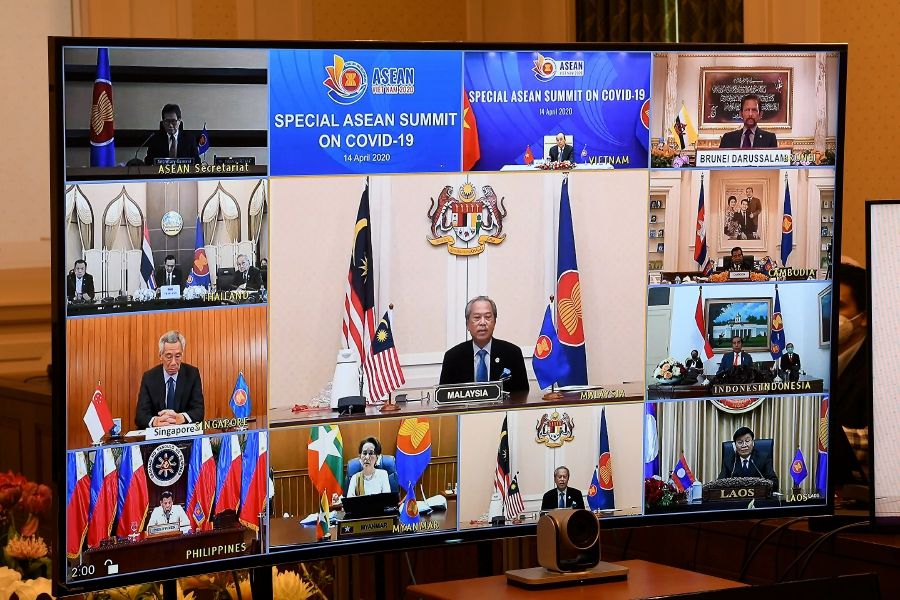 |
| Malaysian Prime Minister Tan Sri Muhyiddin Yassin speaking at the virtual ASEAN Special Summit on COVID-19 on April 14, 2020. (Photo: Bernama) |
Notwithstanding, what is required of ASEAN in 2020 is in line with Viet Nam’s Chairmanship theme this year, which calls for a cohesive and responsive region. For Malaysia, we are fully behind Viet Nam’s leadership in upholding the unity, solidarity and internal strength of ASEAN, as we seek to increase economic connectivity, deepen the ASEAN values and identities, and enhance the efficiency of the bloc’s apparatus globally.
On relations with Dialogue Partners, ASEAN remains committed in its mutual engagement with Dialogue Partners, in shaping a peaceful, prosperous and rules-based region with ASEAN at its center. As country coordinator for ASEAN-Australia Dialogue Relations for three years from 2018 to 2021, Malaysia is committed to vigorously explore and diversify our cooperation towards realising the full potential of ASEAN-Australia Dialogue Relations, guided by the new ASEAN-Australia Plan of Action (POA) for 2020 to 2024, which was adopted in August 2019.
The ASEAN Community Vision 2025 reaffirmed the ASEAN vision of an integrated, peaceful, stable, prosperous, and caring community. Furthermore, the 2025 vision emphasizes a rules-based, people-oriented and people-centered and sustainable ASEAN Community that is outward-looking within a global community of nations while maintaining ASEAN centrality. It is a vision of a community of peoples enjoying human rights and fundamental freedoms, higher quality of life, and a greater sense of togetherness and common identity.
However, looking at the tremendous changes over the years and the ongoing geo-economic, geopolitical, and technological landscape transformations since the adoption of ASEAN Vision 2020 and the ASEAN Community Vision 2025. It is apt for ASEAN to step forward to strengthen the ASEAN community and reinforce its position in the region and globally.
Facing greater uncertainty, ASEAN must, more than ever, maintain its unity and centrality, adjust to and benefit from economic and technological transformations emerging worldwide. ASEAN must continue to engage its people and the ASEAN community is an embodiment of ‘unity in diversity’ bonded together in peace, security, and prosperity. As the COVID-19 pandemic has significantly changed the way people live their lives, we have to accept the fact that no individual, organisation or country can escape this inevitable change. To remain resilient, citizens of ASEAN and their businesses need to embrace the ‘new normal’ quickly and wisely.
Malaysia holds ASEAN dearly and shall continue to focus on its development as one of the most important regional organizations globally. Malaysia, as one of the founding members, will continue to play a leadership role in ASEAN. In this connection, Malaysia, together with all other AMS and partners could focus on ASEAN’s reform agenda which would turn ASEAN into a more efficient and effective organization.
For the shared prosperity and well-being of our peoples, ASEAN will continue to evolve to move beyond the robust grouping that ASEAN already is and to explore new frontiers of cooperation. ASEAN must continue to build on these foundations to ensure that ASEAN remains a cohesive, credible, responsive and relevant organization that benefits the region and beyond.
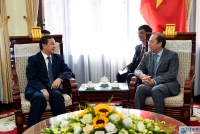
| Lao highly appreciates Viet Nam’s role as ASEAN Chair Laos is fully supportive of and welcomes Viet Nam’s role as ASEAN Chair for 2020 and is in full agreement with Viet Nam’s theme “Cohesive ... |
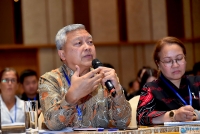
| ASEAN - A key pillar of Indonesian foreign policy Apart from bringing the benefit to the people, the relevance of ASEAN should bring benefit to the region and the world. |
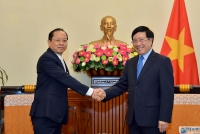
| Viet Nam – my observations I believe that as Chair of ASEAN and a non-permanent member of UNSC, Viet Nam will fulfill these two roles, contributing in maintaining and enhancing ... |

















